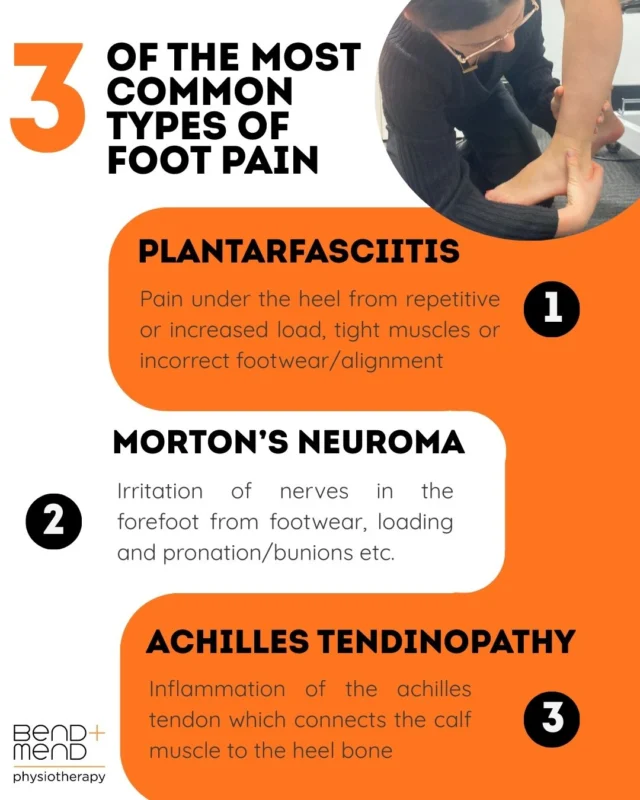Increasing running mileage in preparation for a race or goal unfortunately does increase injury risk and indeed we see many injured runners hobbling through our clinic doors at Bend + Mend. So, what can you do to avoid becoming one of those unfortunate people who suffer an injury from running?
Exploration of the research literature shows that the biggest factor for causing running injuries is not surprisingly – running! However, the solution is not to stop running. So, what else then causes running injuries?
 A study published in 2014 by Saragiotto et al. asked runners what they think causes running injuries. The common answers given were:
A study published in 2014 by Saragiotto et al. asked runners what they think causes running injuries. The common answers given were:
- Not stretching
- Not warming up
- Wearing the wrong shoes
- Lack of strength
- Excessive training
- Unbalanced diet
- Not respecting the body’s limitations
The research literature however does not agree with a number of these beliefs on what causes running injuries. There is currently no evidence to support the notion that stretching before or after a run, warming up before a run, wearing the correct shoes and eating a balanced diet significantly reduces running injuries.
The runners from this study were however correct in stating that excessive training causes running injuries. It has been estimated that between 60-80% of running injuries is due to training error where the training load exceeds the capacity of the tissue. This normally occurs when the increase in running volume (how much), intensity (how hard) and frequency (how often) is too fast for the tissues to adapt too, with injuries resulting. An injury in the previous twelve months and a higher body mass index has also been linked to a higher risk of a running injury.
When planning your training consider these points to reduce your risk of injury:
- Train smart by including rest days especially after intense training days as your body needs the time to recover. If you run without giving your body adequate rest it will tip the balance towards tissue breakdown increasing your risk of injury.
- Include strength and conditioning training in your routine which has been demonstrated to reduce injury risk and improve performance. Your physiotherapist will be able to help you identify specific weaknesses and provide a targeted strengthening exercise program.
- Track your running to monitor your weekly running volumes to avoid a sudden increase in your weekly mileage. Ensure that you follow a graded running program where increases in running distance is done gradually.
- Do not make too many changes to your training program at once. Only schedule one change in your training cycle such as your distance, frequency and speed.
At Bend + Mend we provide Running Assessments to help improve running efficiency and reduce injury risk.





